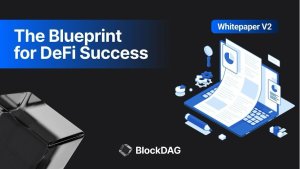Market Regulation is a challenge that could hinder retail FX growth in Africa – Guest Editorial
Retail FX is a huge growth opportunity in Africa, but the lack of consistent market regulations in the region could impact its growth. We looked into the state of FX industry & its regulations in Africa and tried to understand how the market could be developed, says South Africa based expert Rahul Sharma

Rahul Sharma is a managing editor for South African Forex Broker Comparison & Education website ForexBrokers.co.za. He has been active in Forex Industry for last 5 years. His research & publications mainly cover the analysis of financial markets in emerging countries.
In recent years, Africa has seen growing trend in fintech platforms, and online retail FX & CFD trading in the continent is a similar growth story. African investors & traders are increasingly preferring online trading platforms over trading at local stock exchanges.
The rise in demand for FX & CFDs in Africa has been very synonymous with rise of low-cost Metatrader brokers globally. This has been paired with Africa’s large youth population who prefer online CFD & FX trading over other asset classes; mainly because the FX markets are fast moving compared to regional stocks, and the entry barriers are generally much lower due to margin trading.
Moreover, the rapid improvement in internet penetration in the continent in the last 10 years, which is now estimated to be around 39.2% of the continent’s 1.3 billion population in 2020, has added to the huge growth in the available userbase for FX & other investment instruments.
The mobile data across Africa is available at much cheaper costs compared to Asia, Europe or Americas, and the payment gateways in the region are also much stable compared to 10 years ago. This has made it easier for Africans to access online trading platforms & make local deposits, and it is also now easier for brokers to target this growing userbase through online advertising platforms without much restrictions or higher costs as in Europe.
Marketing by most brokers & their IBs in the region are often targeted in a manner that attracts young people to online investing, as means to a stable income. This has brought in many first-time traders.
Another growing story are the professional investors in the region. Global brokerages have been successful in attracting some of these professional investors. Most African capital markets & local exchanges lack sufficient liquidity for professional investors to make profits consistently. So, big investors in Africa have been looking increasingly into global investment options – like stocks of NYSE listed companies, forex market, commodities, that offer higher liquidity & volatility.
Retail FX is growing – South Africa & Nigeria are the biggest Forex markets in Africa
Retail FX demand is growing in Africa and SA & Nigeria are the leading markets in terms of number of forex traders and forex trading volume.
There are estimated to be around 1.3 million Forex & CFD traders in Africa, which means that 0.1% of the population is trading online.
South Africa & Nigeria are the biggest markets in Africa in terms of daily trading volume with combined 390,000 traders.
There are around 190,000 retail forex traders in South Africa with local daily FX trading volume of $20.37 billion for all OTC FX instruments across all pairs and including Spot FX, FX Options/Futures, FX Swaps & Retail FX in 2019 as per BIS (Bank of International Settlements).
While Nigeria has almost 200,000 traders with an estimated daily FX trading volume of $314 million USD per day as per Nigeria’s I&E window transactions data.
According to Trading Data Firm CPattern, traders in South Africa & Nigeria on an average deposited around $742.04 & $514.42 respectively per quarter in 2019 with the popular MT4 brokers; which were the highest figures in Africa.
It was also reported that traders from Kenya, Namibia & Botswana were also among highest depositing customers in Africa after Nigeria & SA; and FX demand is consistently growing in all these countries. This is also evident from the recent Google Trends data for FX related terms in African countries, which shows growing search volume for ‘Forex’ related keywords in the region.
This growth has not gone unnoticed by the brokerages as many global brokers like HotForex, ForexTime, Alpari, XM, Tickmill, EGM Securities (Equiti Group) have opened local offices in Africa & also gotten licensed (or applied for license) with local regulators like FSCA (South African regulator) & CMA (Kenyan regulator) and have started to offer local bank deposit/withdrawal options to attract the local traders & investors in the region. While bigger brokerages like IG & CMC are targeting high value professional clients & IBs from South Africa.
Investor safety is a growing concern
The growing demand for forex & online CFD investments has caused many fake brokers & Ponzi schemes to appear across Africa. These unregulated brokers and Ponzi schemes are hurting investor sentiment.
Beginner investors who don’t have any knowledge of the markets are being lured into investments by fake schemes. We often read news of scams & investors being cheated almost every few months in almost all places of Africa.
As there is a lack of proper local regulations, experienced investors in Africa are forced to look for foreign brokers that are regulated outside Africa to get some sort of investor protection, if at all.
This risky environment is causing distrust among investors in the region.
Authorities across Africa are aware of these developments but are slow to act. They have time again issued warnings to general public to stay away from such investments and advised to use their own discretion; but not all together banning or regulating the sector.
There are no clear directives for the sector in most of Africa, whether its legal or illegal. So, unaware investors are finding their way to invest in forex without any grievance redressal, protection or oversight by the government market regulators.
Uniform Market Regulation is required more than ever
Lack of Market regulation could risk slowdown in the new-found growth of FX sector in Africa. As most countries don’t have a local regulation for forex and CFDs and this has made the environment unsafe for new & existing investors and traders.
South Africa
South Africa, which is the largest FX market does have a FX & CFD regulation and a mature market conduct regulator (FSCA) that can be considered at par with international standards with over 1000 regulated/licensed entities. FSCA also plays important role in investor education in SA as it regularly issues circulars & press releases for educating general public & investors about the market risks.
SA’s government & its regulators are constantly working on making changes to catch up with their international counterparts as they recently implemented 2 major changes in 2018 & 2019 – twin peaks model (which creates two separate regulatory bodies i.e. Prudential Authority and Market Conduct Authority – FSCA working together) to strengthen their market regulators & second the introduction of ODP licensing for CFD providers.
Trust in South African regulator has made many foreign forex brokers to get licensed with FSCA to target the African market. This includes brokers like Hotforex, FXTM, IG Markets, Avatrade, Plus500 & many other leading brokers.
But elsewhere in Africa, the regulations are still work in progress or all together not in place.
East Africa
In Kenya, which is the largest economy in East Africa, CMA (Capital Markets Authority) under Central Bank of Kenya has recently started regulating the CFD & Forex Brokers in 2019; but only 2 brokers – EGM Securities & Scope Markets are currently regulated under them; and the regulation is yet to be tested as it is still new. And traders are being warned against trading with unregulated brokers by CMA and only deal with licensed financial institutions.
This is step in positive direction as this will protect investors interest and put an end to unregulated forex trading in Kenya. We need to see how this goes only time will tell.
In Tanzania, regulators have put in place general restriction on Forex transactions; anyone investing money abroad can only do so through its Authorized dealers i.e: Banks, financial institutions licensed by Bank of Tanzania (BoT). And as per some sources in August 2019, BoT issued a circular that it is conducting study on Cryptocurrency & Online Forex Trading and considering regulating brokers for the same.
As of now, there are no clear regulations or directives on online forex trading’s legality in Tanzania.
West Africa
Whereas, Nigeria which is the second largest FX market in Africa doesn’t have any Forex or CFD regulation and market regulator SEC (Securities & Exchange Commissions) which oversees local capital markets issued a public notice in 2018 warning the investors about the risks & abuse of leveraged online retail forex trading & acknowledged the widespread advertisements luring investors to the space.
The notice also hinted about the possible regulation that might come in place in future. But as of now in 2020, there is no such update and the online retail FX sector remain unregulated & yet not illegal as there is no directive against that.
There are many foreign regulated brokers operating in the region alongside unregulated & fake brokers, Ponzi schemes labelled as forex investments. So, unaware investors are constantly at risk.
Many experienced Nigerian traders & investors are using their own discretion to invest with brokers that are regulated overseas with FCA, ASIC, CySEC or FCSA. This way they might get some sort of security that broker would not scam its investors & provide proper trading environment as stipulated by the regulators in the foreign jurisdictions.
Elsewhere in Africa
In Namibia, BoN (Bank of Namibia) has allowed investors to invest at their own risk & discretion upto 1 Million Namibian Dollars ($67,000 USD approx.) through ADs (Authorized Dealers) under single discretionary allowance in any foreign exchange transaction. But there is no clear directive or regulation for forex & CFDs in Namibia. And Namibian investors are at risk in case of wrong doings by brokers.
In, Rest of Africa in most countries, there are no clear regulations for Forex & CFDs. The current regulations in most African countries are for regulating traditional capital markets and doesn’t include FX & CFDs. Therefore, the lack of regulations for retail FX industry has made new African investors victims of scams by fake brokers & traders who falsely advertise returns on pretext of Forex.
This has brought bad name to genuine trading, brokerages & overall sector. And this image needs to be cleaned by strong regulations & proper investor education.
The way forward
African governments & market regulators need to learn from Europe and other organized markets to implement regulations for FX & CFD trading. There has to be a uniform regulation in place that is based on global standards like ESMA & MiFID.
Moreover, brokers & regulators in the region need to work together on educating the investors about the basics & risks of investing in the FX & other markets. And there needs to be some framework for the addressal of investor grievances, and protection from unregulated schemes.
This will help strengthen the FX sector & investor sentiment in Africa; and provide stability which is very crucial for the growth & development of the FX industry in the region, that is still in its early stages.
The subject matter and the content of this article are solely the views of the author. FinanceFeeds does not bear any legal responsibility for the content of this article and they do not reflect the viewpoint of FinanceFeeds or its editorial staff.
Image: Bryanston Country Club, Sandton, South Africa.









